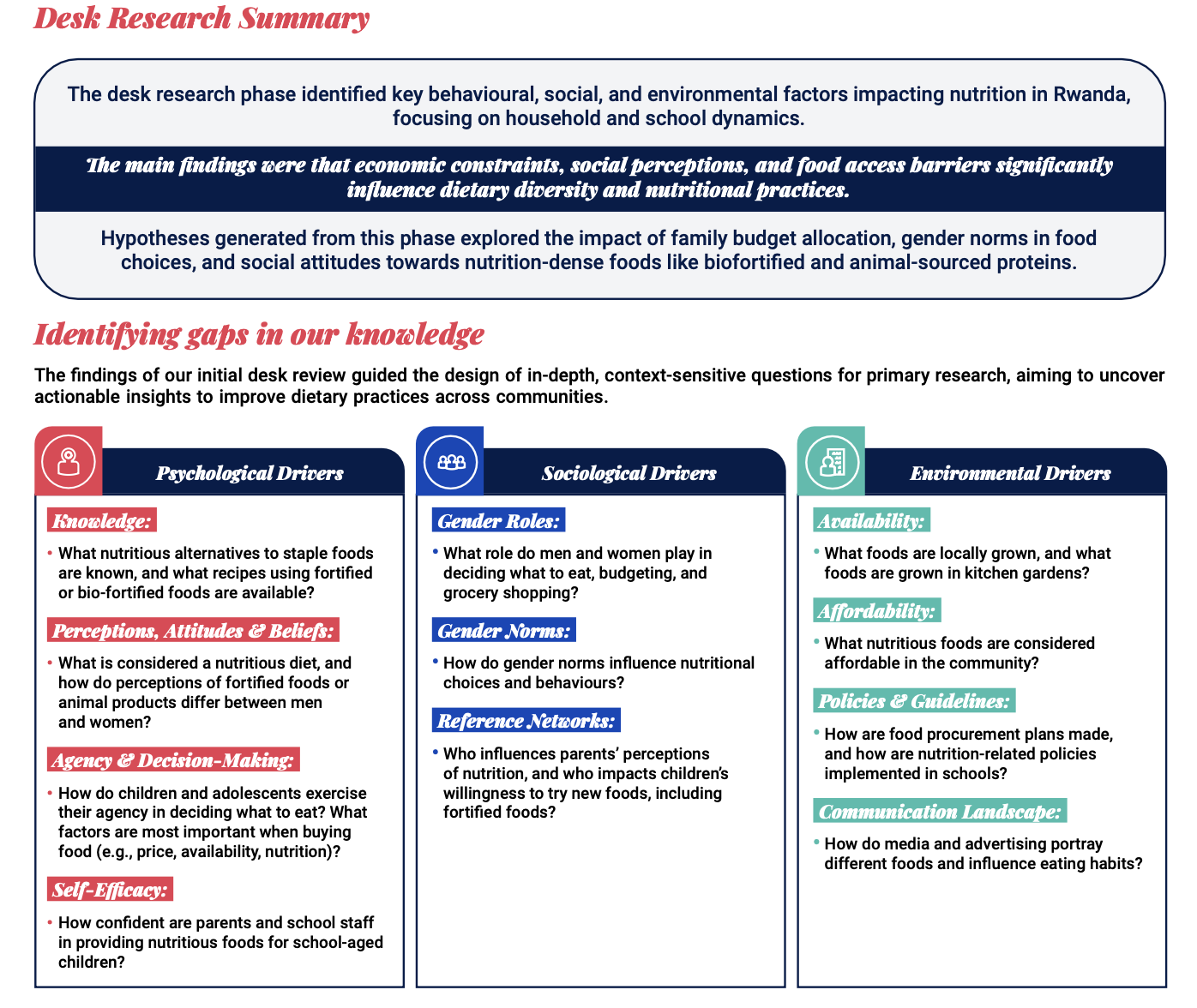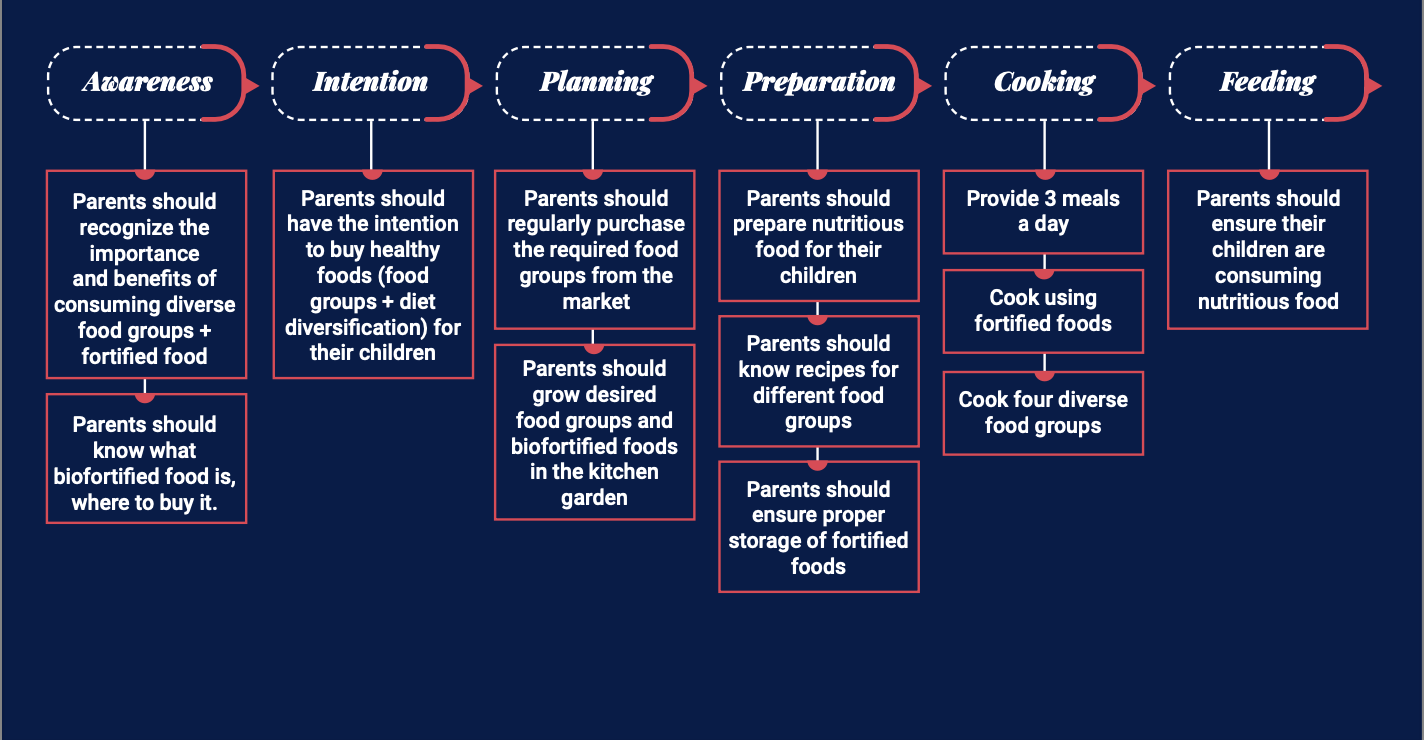
Understanding the Barriers to Healthy Diet, and Factors Contributing to Child and Adolescent Malnutrition, in Rwanda
Client: Ogilvy Paris for WFP Rwanda
Pillar: Health and Nutrition
Thematic Area: Health and Nutrition
Services Provided: Research
The Challenge
Rwanda, with a population of 13.2 million growing at 2.3% annually, is one of the world’s most densely populated countries. Its economy relies heavily on agriculture, with 69% of households engaged in farming or animal husbandry. Despite progress in poverty reduction, gender equality, education, and public health, 38.2% of the population still lives below the poverty line, and 20% face food insecurity.In 2019-2020, 33% of children under five suffered from stunting, linked to chronic malnutrition and poverty. Agriculture, crucial to livelihoods, is hindered by limited land, climate fluctuations, pests, and diseases
MAGENTA and Ogilvy collaborated to promote better nutrition amongschool-aged children and adolescents by conducting formativeresearch to identify factors influencing their food choices. Using these insights, we developed Social and Behaviour Change Communication (SBCC) strategies to encourage nutritious food consumption in households and schools across selected districts. By addressing both household dynamics and school feeding programs, the project provided a comprehensive view of nutrition inRwanda, uncovering key behavioural, social, and economic influences on dietary choices and enabling the design of targeted, impactful interventions.
Phase 1 & 2: Preliminary and Formative Research
Setting the scene – who and where?
Phase 1 Research Findings
Phase 2 Research Findings
Nutrition Journey Map at Home
The following table summarizes the nutrition journey at the household level:
Where to now?
Following the research phase, the project will focus on designing and implementing targeted Social and Behaviour Change Communication (SBCC) interventions based on the identified priority behaviours. These will leverage the insights gained to address specific barriers, such as limited access to diverse foods and the influence of social norms. The project will develop context-specific messages fo r households and schools to promote better nutrition practices. This phase includes a pilot of SBCC activities in selected districts to assess the effectiveness of tailored communication strategies. The pilot findings will inform a broader rollout, ensuring interventions are optimised for maximum impact on nutrition behaviour across Rwanda.












